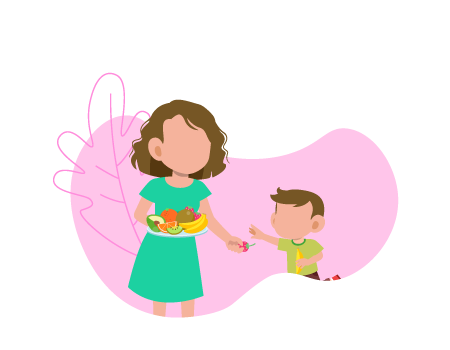At the age of 6 month, your baby’s nutritional needs are not met by milk alone and the digestive system is also well developed to accept solid food. The biggest challenge is how to initiate solid food, provide palatable, easily digestible and tasty food at regular intervals that develops the taste buds and ensure optimum nutrition of the baby. It is very important to know that Malnutrition in children, occurs most commonly during the weaning and post weaning phase.

There are following sign and symptoms (post 6 month of age) should be addressed to avoid a child to become pick-eaters or undernourished.
According to the recommendations of WHO, complementary foods should be introduced to the infant at 6 months of age in addition to breast milk. Initially it should be given 2-3 times a day between 6-8 months, increasing to 3-4 times daily between 9-11 months and 12-24 months with additional nutritious snacks offered 1-2 times per day, as desired.
4.5
Delhi
Ambala
